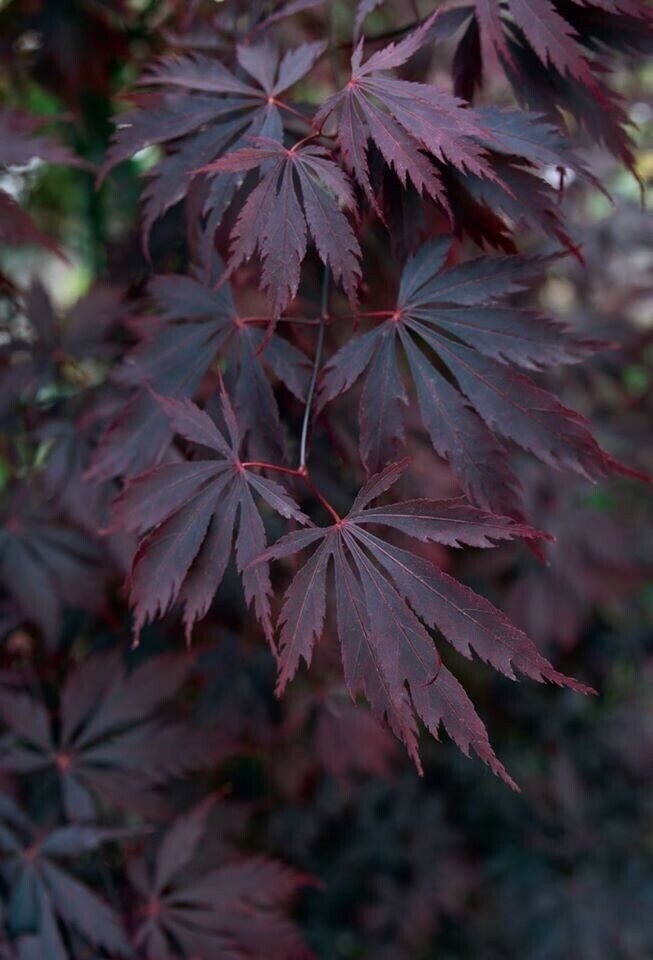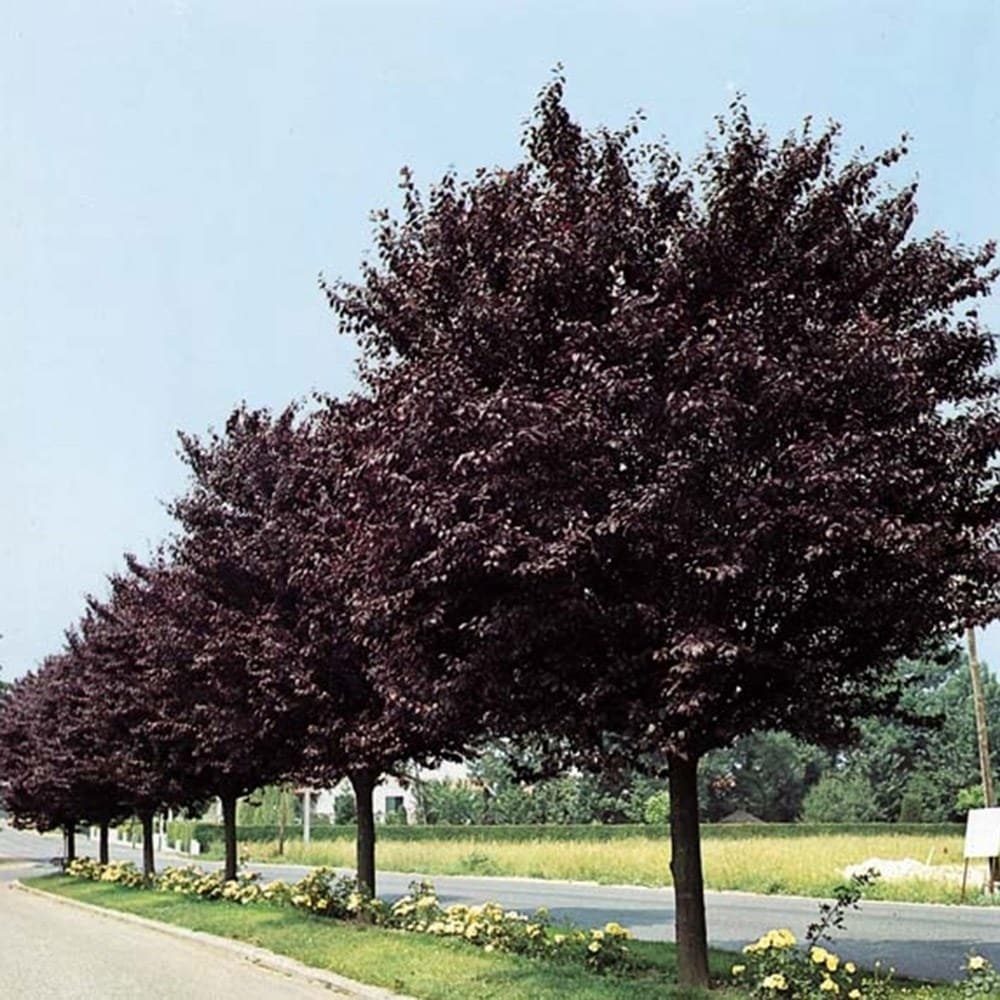Black Leaved Trees
Black leaved trees are a stunning addition to any garden or landscape. They immediately catch the eye with their dark, almost black foliage, and add a dramatic touch to any setting. But what are the benefits of growing black leaved trees? Is it worth the extra effort to include them in our gardens?
Pain Points
Many gardeners may worry that black leaved trees may not thrive in their particular area. Others may be concerned about the extra care that these trees may need in order to maintain their dark color. And some may simply wonder if these trees are worth the investment.
Target of Black Leaved Trees
Black leaved trees are sought after for their unique aesthetic appeal. They can serve as a striking focal point in a garden or add depth to a landscape. Additionally, black leaved trees, like all trees, have ecological benefits such as providing oxygen, filtering pollutants, and providing shade for humans and animals alike.
Main Points
In conclusion, black leaved trees add drama and beauty to any landscape. They have ecological benefits and can serve as the centerpiece of a garden. While they may require some extra care, the benefits outweigh the effort. Below, we will dive deeper into the topic with personal experiences and more information about black leaved trees.
Benefits of Black Leaved Trees
One of my favorite memories of black leaved trees is from a trip to the Pacific Northwest. I stumbled upon a garden filled with black leaved Japanese Maples and was amazed by their beauty. Black leaved trees, like the Japanese Maple and Black Cherry Plum, add a unique touch to any garden. Their dark foliage contrasts beautifully with other plants and adds depth and interest to any landscape. Additionally, these trees are hardy and can thrive in a variety of climates.

Care and Maintenance
While black leaved trees can be low maintenance once established, they may require some extra care to maintain their dark foliage. Consistent watering during the tree's first few years can help it establish deeper roots, making it more resilient. Additionally, fertilization can provide the tree with necessary nutrients to promote growth and keep leaves from yellowing. Pruning is also important to promote healthy and vigorous growth.

Breeding of Black Leaved Trees
Black leaved trees have been bred for their unique appearance, and there are now a number of different varieties available. Many trees have been specifically bred for their dark foliage, while others have been bred for their unique shape or growth pattern. The diversity of black leaved trees means that there is a tree for every landscape and design preference.
Best Uses for Black Leaved Trees
Black leaved trees are versatile and can be used in variety of ways. Large specimens can serve as the centerpiece of a garden, while smaller trees can be used to fill gaps in a landscape. Additionally, these trees can be planted in containers and used to add interest to a patio or balcony.
Question and Answer
Q: Can black leaved trees grow in all climates?
A: While black leaved trees can thrive in a variety of climates, some may prefer warmer or cooler temperatures. It's important to research the specific tree variety and its growing requirements before planting.
Q: Do black leaved trees require a lot of maintenance?
A: While extra care may be required to maintain the tree's dark foliage, many black leaved trees can be low maintenance once established. Consistent watering, fertilization, and pruning can help promote healthy growth.
Q: What are some other trees that pair well with black leaved trees?
A: Black leaved trees pair well with a variety of trees, including those with lighter foliage, flowering trees, and evergreens. Consider planting a white flowering dogwood or a stately oak tree alongside a black leaved Japanese Maple.
Q: Can black leaved trees be used in smaller gardens or landscapes?
A: Absolutely! Smaller black leaved trees, like the Black Lace Elderberry, can be used in small gardens or landscapes to add interest and depth.
Conclusion
In conclusion, black leaved trees are worth investing in for their unique beauty and ecological benefits. While they may require some extra care, the benefits of adding one of these trees to a garden or landscape far outweigh the effort. Consider adding a black leaved tree to your garden today!
Gallery
Prunus Cerasifera 'Nigra' - Black Cherry Plum

Photo Credit by: bing.com / prunus cerasifera dark purple nigra trees foliage cherry plum blossom blackish
Buy Black-leaved Plum Prunus Cerasifera Nigra: £63.99 Delivery By Crocus
Photo Credit by: bing.com / prunus nigra cerasifera
Acer Palmatum Black Lace- Japanese Maple - Garden Plants

Photo Credit by: bing.com / palmatum
Buy Black-leaved Plum Prunus Cerasifera 'Nigra': Delivery By Waitrose

Photo Credit by: bing.com / prunus nigra cerasifera plum crocus trees leaved tree purple garden leaves plants flowering leaf height landscaping mature buy purchased wondering
Prunus Nigra - Black Leaved Plum | Mail Order Trees

Photo Credit by: bing.com / nigra prunus plum leaved